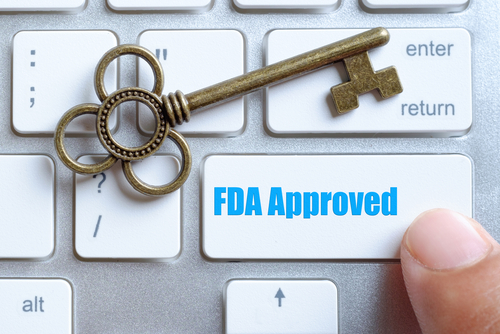Patients with the most common liver cancer subtype, hepatocellular carcinoma (HCC), who have not responded to Nexavar (sorafenib), now can be treated with Opdivo (nivolumab), following an accelerated approval granted by the U.S. Food and Drug Administration (FDA).
The decision was supported by tumor response rate and durability of response seen in the Phase 1/2 CheckMate-040 trial (NCT01658878). Under the accelerated approval program, continued FDA sign-offs can depend on the results of clinical trials that confirm Opdivo’s effectiveness in this population.
“We are proud to bring the potential for clinically meaningful responses with Immuno-Oncology therapy to these advanced-stage HCC patients, who have had limited treatment options for years,” Chris Boerner, president of U.S. commercial department at Bristol-Myers Squibb, said in a press release. “Today’s approval marks an important step toward our mission of delivering transformational medicines to treat conditions with a high unmet need.”
The open-label, multicenter CheckMate-040 trial is assessing the safety and effectiveness of Opdivo in patients with advanced HCC who did not respond or were intolerant to Nexavar.
The study, sponsored by Bristol-Myers Squibb, enrolled 154 participants with or without hepatitis B virus or hepatitis C virus, irrespective of their PD-L1 status. Opdivo was administered through an intravenous infusion every other week.
Results from the trial showed that 22 patients, or 14.3 percent, responded to Opdivo, including three who saw a complete eradication of their tumor. The responses were sustained for six months or longer in 91 percent of patients. More than half (55 percent) had responses lasting at least one year.
“In recent years, there has been growing interest in leveraging immuno-oncology knowledge and discoveries to add to the treatment options available for patients with advanced-stage liver cancer,” said lead investigator Anthony B. El-Khoueiry, MD.
“The approval of Opdivo provides us with an encouraging approach and a new treatment option for appropriate patients with HCC following prior systemic therapy,” said El-Khoueiry, who also is associate professor of clinical medicine and Phase 1 program director at the Keck School of Medicine of University of Southern California (USC) and the USC Norris Comprehensive Cancer Center.
Opdivo showed a manageable safety profile and acceptable tolerability. The most common adverse reactions included fatigue, musculoskeletal pain, abdominal pain, itch, diarrhea, rash, cough, and decreased appetite. Treatment-related severe or life-threatening events included increased levels of liver enzymes. Liver inflammation was reported in 5 percent of the patients.
“I advocate for others because I know firsthand the terrible toll cancers of the liver take on a patient and their loved ones. In my opinion, HCC is an example of a cancer where awareness is out of sync with the impact of the disease,” said Suzanne Lindley, co-founder of Yes! Beat Liver Tumors. “Today’s approval shines a light of awareness and hope on a disease with a high unmet medical need.”
Bristol-Myers Squibb is committed to help patients to have access to its anti-cancer therapies. The BMS Access Support program aims to improve patients’ access and initiate treatment by offering co-pay assistance for eligible and commercially insured patients. Additional information of the patient support program can be found on the website www.bmsaccesssupport.com or by calling (800)861-0048.


